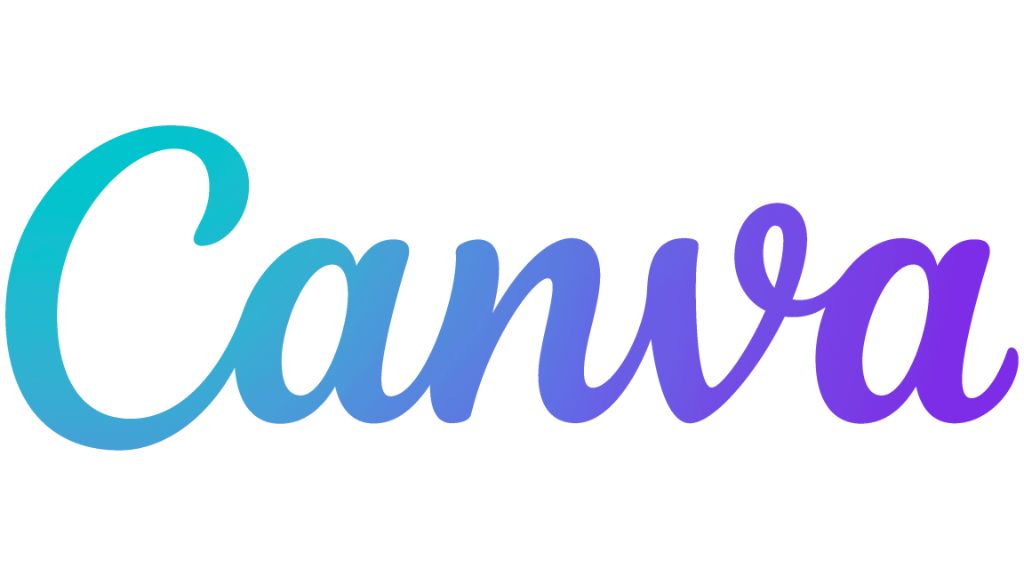You can also stream this episode on Spotify or Apple Podcasts.
Episode Transcript
To access a transcript of this episode click on the drop-down button below.
[00:00:00] Viv Mullan
We would like to acknowledge the traditional owners of the lands on which we record this podcast. The Gadigal people. This is their land, never ceded, always sacred and pay respects to the elders past, present, and emerging of this place. Coming up on Remarkable Insights.
[00:00:16]
(Bright, uplifting music with electronic beats and cheerful synth melodies.)
[00:00:17] Viv Mullan
Coming up on Remarkable Insights
[00:00:18] Angie Ballard:
So we need the sport and the sports rules, both in terms of safety and in terms of performance to keep that living a level playing field
[00:00:27] Viv:
Welcome back to Remarkable Insights. I'm your host, Viv Mullan, and this is part two of our chat with Australian co captain of the Paralympics, Angie Ballard. As we celebrate the Paris 2024 Games, we pick up this conversation with Angie about how disability tech in sports is being created by people without lived experience.
I understand that the Paralympics, it's very much a movement when they come to town, it gives the people hosting the Paralympics a big nudge and holds a big mirror up to say, "great, you're going to hold these games, it has to be accessible". And I understand that despite that being the one thing that should be met, which is that they create an accessible experience, that often doesn't happen.
I would love to talk about maybe the frustration or the feeling of there being a big injection of money into the technology for the equipment, but then it is not being reflected in the actual accessibility of the games. And if you've seen any incredible transformations of how people have used tech to improve the barriers to accessibility.
[00:01:39] Angie Ballard:
Lots of people have different adaptations that help them access what they need and that's cool. I don't care if someone else has something that I don't have because I know it's about them being. At the equal playing field kind of thing. But it's a funny thing in the mainstream world, we sometimes see someone else getting something and we're like, "Ooh, we're missing out". And I think it's one of the things that I love about disability and tech and accessibility is that we hold capacity for there to be so many improvements at once and not everyone has to take them all up and not everyone has to approach things the same way and that's so important for it being accessible.
I would say the hardest thing is still just changing people's attitudes. There's so many ways that we can help accessibility. But having people want to include people is a challenge sometimes. You know we're going to Paris and they had a limit of two wheelchairs per vehicle. That was a law. And it's not like that people don't want to include, but they just don't even think about it. Say all the athletes in Paris are going to want to go and see Paris after they've finished competing. And that was actually a bit of news to some people involved in the organisation, that people would actually want to go and play tourist in the city that they were competing in. It just hadn't occurred to them that there'd be this mass group of people with disabilities, all sorts of disabilities, vision impaired, mobility disabilities, you know obviously massive amounts of different languages and abilities. And that they would want to be a part of the country that they were in. But that was a given for the Olympic side. There's actually so much we have and can do that is inclusive. It's about people just holding those spaces open and wanting more people in the door. I feel like we, for me, I look around and I'm like, "who's not here?" and I see a lot of people that aren't in the room. And that's especially challenging in the Paralympic movement because part of it's about elite sport and part of it's about inclusion and disability and changing things. And as a movement, you've got to hold both those things together. But at a more real level inclusion is inclusion everyone should be in the room.
[00:04:03] Viv:
We spoke before about the evolution of technology throughout the Paralympic Games from when it first began where people had chairs that didn't even have brakes to where we are today. And I would love to know just your personal opinion of the people that were there at the beginning. If they saw some of the technology available today, would they have any sort of issues or opinions about whether or not the technology available today was perhaps bending the rules or cheating for lack of a better word? And will we continue in 20 years from now, will that be something that maybe you're curious about depending on how advanced technology gets?
[00:04:44] Angie Ballard:
So I feel like there's two parts to this. The Paralympics only started officially as a Paralympics, there was some movement before that in 1960. So there's still people alive today that were at those games and most of them that I've talked to are so excited for where the movements come, how many people get to be involved, how much less hard it is to just get in the door. Like one of the first female Paralympians for Australia had twin girls, self raised to go overseas, won medals and all this
and I just think about what she did without any support or any pathway laid before her is huge. But every time she saw me, she was just like, "You're doing so well. And I love this and keep going". Which was just a beautiful gift and that is what the community is like, and we do have there's people, Louise Sauvage, OAM is a big name in wheelchair racing, and she actually started in one of those chairs that didn't really go that well, and has switched over, like most of her career was in the more modern version of that, but she experienced that and she's just excited every time there's something new available.
We already are experiencing the conflict between tech, cheating, and accessibility. And that requires our sports to actually have a really intimate knowledge of what we do. And I think part of the challenge there is that sometimes the people writing the rules don't know what they're doing. they've never even pushed a race chair. They don't know the ins and outs and the little bits that are fair and perhaps a good advancement. And then there's other ones that we need to put limits on because one of the limits that exists in a Paralympic world is you can't have a prototype piece of equipment. That equipment needs to be available to everyone. But there's a lot of grey area around what is a prototype? What is available to everyone, but a little bit enhanced for this person over here who's sponsored by that company? If we're talking about, oh, it's available to everyone, but it's 200 grand a pop, that's not really available to everyone. And So we need the sport and the sports rules, both in terms of safety and in terms of performance to keep that living a level playing field, which is a concern across all areas of sport. We've got drugs in sport and all those sorts of things. But it's one of those ones where I think the lack of insider knowledge actually causes more harm sometimes to the level playing field that should be there.
So we want the tech to continue, we want to keep on advancing, but it needs to be accessible and it cannot be available to one person over other people. And yeah, there's definitely that talk as things go on. I think it was the check of the speed suits with swimming. And they at some point decided that wasn't a measure of athletics performance. They want to go back to a fairer playing field with that. I expect that will come up. I think we're on the cusp of it.
[00:07:54] Viv:
I'm curious to know, do you see that sort of decision making happening in the actual design of the technology that athletes with disabilities need to use or want to use? Do you see wheelchairs being made without consultation, from people with lived experience?
[00:08:10] Angie Ballard:
Yeah, weirdly, still. Even just simple things like at the games, In Tokyo, COVID, we didn't have any people in the stands, which is weird.
[00:08:20] Viv:
Oh yeah. Wow. That would be weird.
[00:08:22] Angie Ballard:
Yeah and Japan was fantastic. I feel for them having to put on a games where they can actually enjoy it themselves.So everything was designed for TV, right? I do wheelchair racing. And there's certain things I do for performance in my wheelchair before I get ready for an event. But because it was all about the TV and they hadn't thought about how we interacted with the cameras and what differences we needed to warm up for our event, we actually got the shitty end of the stick because they were like, no, you have to go straight to the line. And normally we get a lap and I had the camera guy like trip over my front wheel while he was filming me and things like that. And I'm like, this is like simple stuff that it's like "hang on". But then I think about 20 years ago when the photo-finish cameras for times, they didn't go low enough to capture my times because wheelchairs are lower than everyone else. So things like that have changed. So that's good. But also I still get hella mad and I still get frustrated that it's this way. And I think that's where my value lies in this community. And I know where a lot of people's value lies. For me, when I was young, I didn't have to want to speak up all the time when things weren't fair or things needed to be different. And I still don't always love having to do that. I pick and choose my moments, but in the world of sport, I feel like if the only thing I can say is with honesty, this wasn't good enough, this wasn't fair, this wasn’t inclusive and these are the things we need to make it better." Then that's what I can bring to the table.
[00:10:03] Viv:
And in a dream world, if you were given a wish for the upcoming Paralympics, what is one way you would like to see it be a more accessible and inclusive event from a way that innovation and tech might be able to lend itself to?
[00:10:19] Angie Ballard:
You have a lot of purists in the sport world and it's all about athletic ability, but one of the challenges within Paralympic sport is we don't have as many people at lower classifications, which means lower function. And why do we not have that? We don't have that because it's not necessarily the technology that makes it easier for them to access the sport or that technology is prohibited in terms of price or adaptability to that individual. So we see less people with higher levels of disability involved, and they are usually the ones that are more involved and more dependent on tech. Making things more accessible and inclusive. I think that will continue to evolve, and I think that should be in the hands of the community itself that figures that out. The sports that we have in the Olympic and the Paralympic Games changes year to year, and it's meant to reflect the public and what's important to us. And I think that's really important for our Paralympic movement. That being said, I think, In terms of just accessing sport and all the benefits being involved in your community, the social side having all of those benefits, I think that needs to be open way more. And that's where I think tech has like a huge part to play because not everyone wants to be the best athlete in the world. Not everyone wants to be an opera singer, like whatever, but that shouldn't stop you from being able to like access things like sport and community.
[00:11:52] Viv:
You spoke to it in that answer, but I wonder if there's any more you'd want to add to the question of how has technology changed people's perceptions of the Paralympics over time?
[00:12:03] Angie Ballard:
I think the main thing is that people can access it when they want to, how they want to. And I think that the TV networks of learning, that there's actually a huge demand for Paralympic sport. So people genuinely love to watch and learn and back their stars. And that's what sport and those things are about. But the cool thing about that accessibility for everyone is that it actually is showing that commercial world, that business world, that TV world, that there's actually a lot more hunger for this than there was. On a personal level, it means to me that I'm not the odd one out when anyone sees a wheelchair, because it's just across the board. And I get to say, now ‘have you heard of Madison De Rozario or Kurt Fearnley?’ And there's like a bigger community and I love that people being able to access it and share that amongst themselves.
[00:13:00] Viv:
And if there was an up and coming athlete listening to this episode, what kind of advice would you give to them about the process of collaborating with engineers, say, or people that are building technology to help them with their performance?
[00:13:17] Angie Ballard:
And I would say this to anyone of any age, your voice counts, you know way more about being and using that piece of tech, whether that's, or equipment, that's being the chair or anything. I'm talking to people that have never raced in a wheelchair before. So they bring their skills to the party, but we need to make sure that our skills and our knowledge is really heard and included in that design because then we don't get to the end result and it doesn't work. We actually collaborate together. And I think having confidence, especially if you're younger, confidence to know that what you experience and what you've learned so far, even though you might learn some more is really valid and it is a unique perspective a lot of the time. So you don't need to seek out other unique perspectives like yours but you've got something to bring to the table, 100%. So back that.
[00:14:10] Viv:
Great answer. And at the end of these episodes, we'd like to invite our guests to leave people enjoying the show with a Remarkable Insight. Is there anything you would like to share that you can just leave people to think about beyond this episode?
[00:14:24] Angie Ballard:
Let's really try and see how much capacity we have to hold space for more than one option, because it makes it more accessible, makes us more flexible. I just think that it's just more inclusive. And I think that everyone at some point in their life will experience what that means, but they might not realise until that moment happens, how much it sucks to be on the other side of that.
[00:14:51] Viv:
Make sure you subscribe or hit follow to not miss another Remarkable Insights episode.
Episode Overview
Meet our Guest
Few athletes in any sport have enjoyed the sustained level of performance that Angie Ballard has achieved over an incredible length of time – 25 years and counting. To have spent much of that time at the pinnacle of world para-athletics puts Angie in rarefied air.
After making her Paralympic Games debut at the Sydney 2000 games, she won her first Paralympic medal, a bronze, at the Athens 2004 Paralympic Games. A silver medal in the women’s 4x100m T53/54 at the Beijing 2008 Paralympic Games preceded Angie’s most successful Paralympic campaign to date at the London 2012 Paralympic Games, where she won a pair of silver medals in the women’s 200m T53 and women’s 400m T53, and bronze in the women’s 100m T53.
Her success has not been limited to the quadrennial Paralympic Games - on the World Championship stage she has also made her mark. After winning her first world championship in the women’s 100m T53 in 2002, Angie collected two more world titles in the women’s 200m T53 and women’s 400m T53 at the 2015 IPC Athletics World Championships in Doha, Qatar.
Her ability to not only maintain her competitiveness on the global athletics stage over such a long period, but her desire to support and inspire the generations coming behind her has seen Angie recognised with one of the greatest accolades for any athlete – captaincy of the Australian Team for the 2024 Paris Paralympics. Ballard was appointed to the captaincy alongside Curtis McGrath.
Angie will draw on her vast experience and personal growth over 25 years as an elite level wheelchair racer to deliver the leadership required for such a role. She has pledged to ensure Australian Paralympic Team members felt safe coming to her seeking advice or to help solve problems and to work to help the team and athletes to reach their goals.
Video Highlights
Check out some of the highlights of this episode of the Remarkable Insights podcast, now featured in our captioned video reel!
Key Quotes
Below are some of the key quotes that capture the essence of our discussion:













